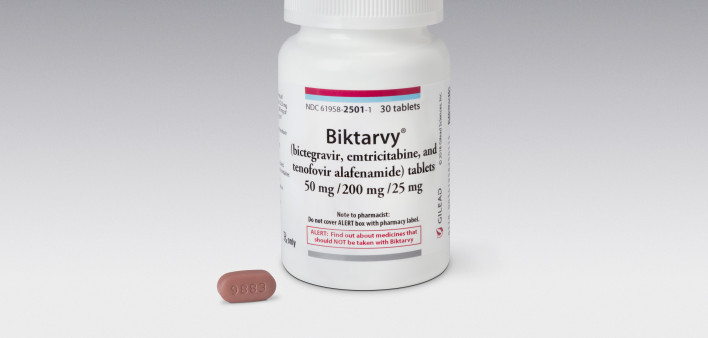In a large clinical trial including African Americans receiving HIV treatment, those who switched their antiretroviral (ARV) regimen to Gilead Sciences’ Biktarvy (bictegravir/tenofovir alafenamide/emtricitabine) maintained a high level of viral suppression after one year compared with those who remained on their initial regimen.
Findings from the Phase III BRAAVE 2020 study were presented at the virtual IDWeek conference this week. The study enrolled 495 HIV-positive African Americans who were taking two nucleoside/nucleotide reverse transcriptase inhibitors plus an additional ARV. Some of the participants had a history of ARV treatment failure or preexisting HIV mutations associated with resistance to any of the three drugs included in Biktarvy.
The participants were randomized on a two-to-one basis to switch to Biktarvy immediately or to remain on their initial regimen for 24 weeks and then to switch to Biktarvy.
At the study’s 48-week mark, 99% (324 of 327) of those in the group that immediately switched to Biktarvy had a fully suppressed viral load, as did 100% (162 of 162) of those who switched after 24 weeks.
This high level of viral suppression occurred irrespective of participants having virus going into the study that had mutations associated with resistance to the components of Biktarvy.
Biktarvy is approved in the United States to treat first-timers to HIV treatment, including adults or children who weigh at least 55 pounds. It is also approved for adults and children who switch from a stable ARV regimen that has fully suppressed their virus. However, such individuals must have no history of any ARV regimen failing and no known HIV mutations associated with resistance to any of the three components of Biktarvy.
The BRAAVE findings suggest that even people with such viral mutations can still benefit from the single-tablet regimen.
To read a Gilead press release about the study, click here.







Comments
Comments